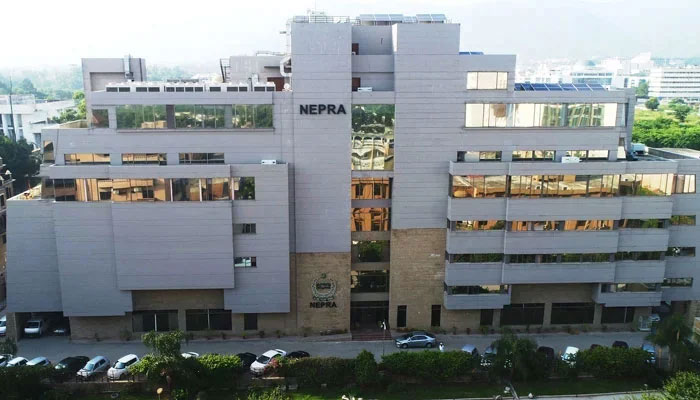Nepra announces Rs1.27/unit refund in Nov bills
This marks third consecutive month of FCA reductions after 18 months of consistent increases
ISLAMABAD: The power consumers who paid higher rates in September will see a relief in their November bills with a refund of Rs1.2754 per unit, the National Electric Power Regulatory Authority (Nepra) announced. The authority determined that the power generation costs in September were lower than the rates charged to consumers, prompting the adjustment.
This marks the third consecutive month of fuel charges adjustment (FCA) reductions after 18 months of consistent increases.
In September, the consumers were refunded Rs0.3692 per unit for July FCA adjustments, while the October bills included a Rs0.8555 per unit refund for August.
Nepra’s Tariff Member, in an additional note, highlighted inefficiencies in the power sector, describing them as a significant financial burden costing billions of rupees and posing challenges to sustainable power management in Pakistan. He urged the relevant entities to tackle these inefficiencies promptly to reduce the financial strain on the power sector and improve overall system efficiency.
The regulator took the decision in a public hearing on October 30 and on Wednesday, it formally notified it. It may be noted that the Central Power Purchasing Agency (CPPA) had sought a reduction of Rs0.7057/unit. However, the regulator has allowed an extra release of Rs1.2754 per unit to consumers.
Rafique Ahmad Shaikh noted that in September 2024, the Guddu 747MW power plant operated in open-cycle mode, costing 1.5 times more than combined cycle mode and resulting in a loss of Rs0.52 billion. This operation contributed to cumulative losses of around Rs2.3 billion for fiscal year 2024-25. Furthermore, reduced generation at Guddu led to greater reliance on costlier plants, causing a loss of Rs6.4 billion in September alone, with total losses surpassing Rs18 billion for the fiscal year.
The 969MW Neelum Jhelum (NJ) power plant was also non-operational in September 2024, leading to higher costs as the system relied on more expensive power sources, resulting in an additional Rs4.9 billion loss. The cumulative losses due to higher-cost generation because of NJ Plant’s unavailability is now approximately Rs17.2 billion for FY2024-25. Non-production of energy from the 747MW Guddu and 969MW NJ power plants is also placing a significant foreign exchange burden on the national exchequer.
The underutilization of power capacity is further evident, with thermal “Take or Pay” plants operating at only 40 percent of their 22,541MW capacity in September. Similarly, while Pakistan’s total dependable generation capacity stands at 37,069MW, only 12,487GWh were generated, reflecting an average utilization rate of just 47 percent. Electricity sales also declined by 1,372GWh in September compared to the reference value, with a reduction of 5,189GWh for the first quarter of FY2024-25. This decline may lead to increased quarterly adjustments for consumers. The HVDC transmission line’s utilization rate was only 46 percent in September, although consumers continue to bear charges as if it were fully utilized. Power purchase price adjustment (PLAC) charges amounted to Rs3.86 billion in September, bringing the fiscal year total to over Rs14 billion. The backlog of prior adjustments stood at Rs9.7 billion, and system constraints added a financial impact of Rs529 million in September, totaling Rs7.8 billion for the first quarter.
-
 Will There Be 'Smiling Friends' Season 4? Animated Series' Creators Make Big Announcement
Will There Be 'Smiling Friends' Season 4? Animated Series' Creators Make Big Announcement -
 Jennifer Aniston, Boyfriend Jim Curtis Prepare To Move In After 'hard Launching' Their Relationship?
Jennifer Aniston, Boyfriend Jim Curtis Prepare To Move In After 'hard Launching' Their Relationship? -
 Lamar Odom Details Struggle With Addiction And ‘amazing’ Rehab Experience
Lamar Odom Details Struggle With Addiction And ‘amazing’ Rehab Experience -
 Nvidia Vs Intel: Jensen Huang Braces Investors For Renewed Battle As Chip Wars Reignite
Nvidia Vs Intel: Jensen Huang Braces Investors For Renewed Battle As Chip Wars Reignite -
 Heidi Montag Reveals Why She Felt 'robbed' On 'The Masked Singer' After Her Elimination
Heidi Montag Reveals Why She Felt 'robbed' On 'The Masked Singer' After Her Elimination -
 Australia’s Former PM Gives His Honest Take Against The British Monarchy: ‘It Remains This Anachronism’
Australia’s Former PM Gives His Honest Take Against The British Monarchy: ‘It Remains This Anachronism’ -
 Bombshell Reason Behind Cardi B, Stefon Diggs' Breakup Revealed
Bombshell Reason Behind Cardi B, Stefon Diggs' Breakup Revealed -
 Hilary Duff Details How She Protected Her Children’s Mental Health Amid Divorce
Hilary Duff Details How She Protected Her Children’s Mental Health Amid Divorce -
 'The Masked Singer's Snow Cone's Identity Revealed
'The Masked Singer's Snow Cone's Identity Revealed -
 Kash Patel Fires FBI Officials Behind Trump Mar-a-Lago Documents Probe, Reports Say
Kash Patel Fires FBI Officials Behind Trump Mar-a-Lago Documents Probe, Reports Say -
 Martin Short's Daughter Katherine's Death Takes Shocking Turn As Terrific Details Emerge
Martin Short's Daughter Katherine's Death Takes Shocking Turn As Terrific Details Emerge -
 Jeff Galloway, Olympian, Author, Running Legend, Dead At 80
Jeff Galloway, Olympian, Author, Running Legend, Dead At 80 -
 Patrick Dempsey Reacts To Tragic Death Of His 'Grey's Anatomy' Co-star Eric Dane
Patrick Dempsey Reacts To Tragic Death Of His 'Grey's Anatomy' Co-star Eric Dane -
 Sidney Crosby Injury News Shakes Penguins After Olympic Tournament
Sidney Crosby Injury News Shakes Penguins After Olympic Tournament -
 Yankees Honour CC Sabathia With No. 52 Retirement This September
Yankees Honour CC Sabathia With No. 52 Retirement This September -
 Cuban Government Says Boat Full Of Armed Men Fired On Border Guards, Killing 4
Cuban Government Says Boat Full Of Armed Men Fired On Border Guards, Killing 4




